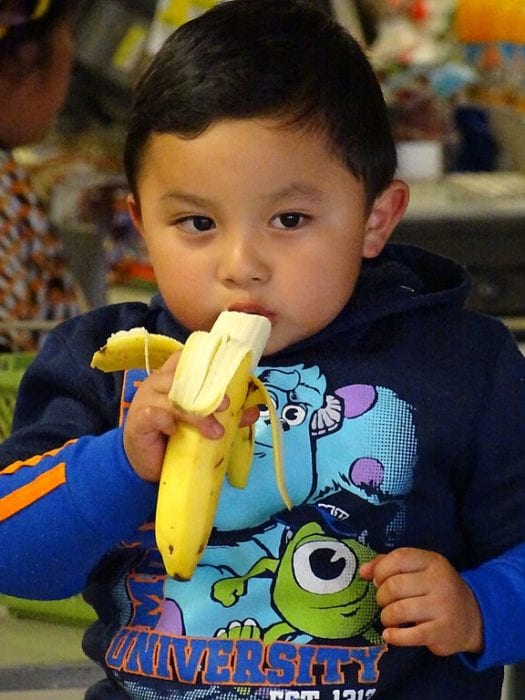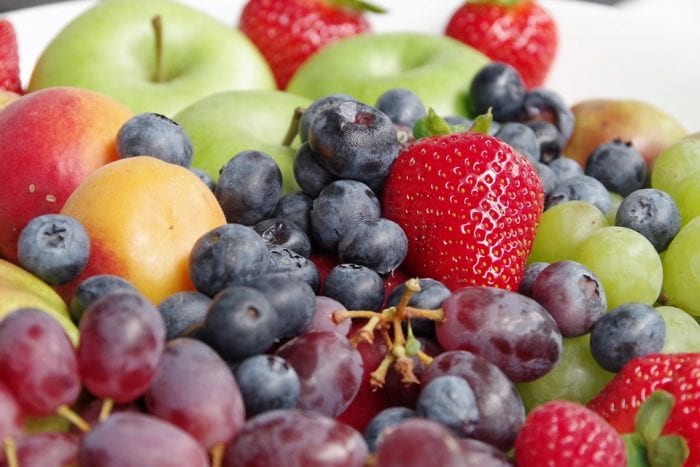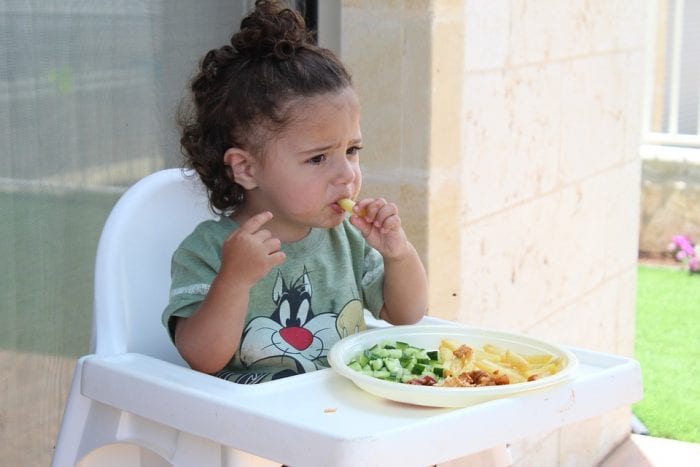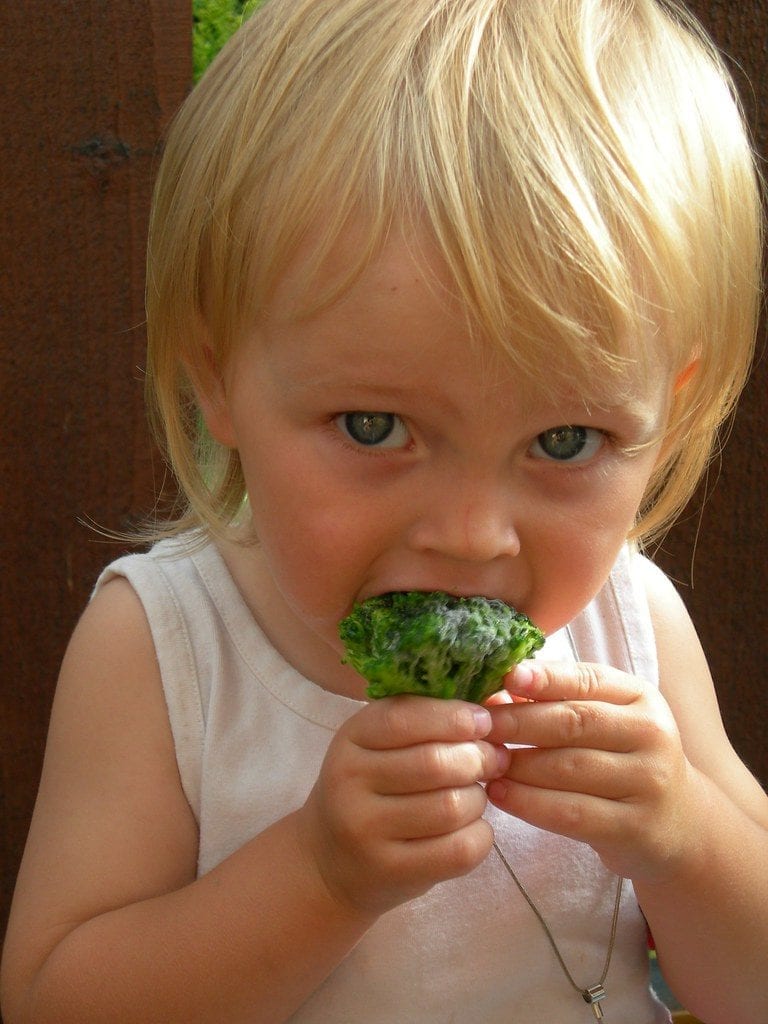As a parent, you take into consideration everything that you feed your toddler. Have you noticed that your toddler only eats or consumes fruit? Toddlers are infamously picky eaters. Their palate isn’t precisely developed, and as a result, they may not consume what you want them to because they tend to develop being picky kids and they just want fruit. You may wonder if this is something you should try.

To change or something you should let naturally happen or introduce new ways to eat new foods aside from fruit.
Let’s talk about a toddler who doesn’t eat veggies because they like to eat their favorite foods and only consume bananas or apples. Many children will prefer having them over anything else. Chances are, you raised them on applesauce and other fruit snacks, so it makes sense according to the feeding therapist. Fruit is sweet, and has a different texture than veggies, and that makes them preferable for a kid.
The Good Of Fruits
Fruits are undoubtedly good for you. It’s packed with vitamins, minerals, and antioxidants. Bananas are packed with potassium; oranges have vitamin C, and so on. The natural sugars of apples give your kid some energy, which is always good when they have a long day of playing. This is really nice for kids who are considered healthy eater.
With that said, veggies like baby carrots have other nutrients that babies need to grow, and as a parent, you want your kid to have the proper nutrition and all the nutrients possible to make sure they are growing well. If they aren’t getting all the nutrients, what should you do? Here are some options.

What Can You Get When You Eat Fruits?
Multi-Vitamins For Toddler
Multivitamins are always good when your diet is missing some essential vitamins and minerals, and you can find multivitamins with sweet flavors specifically for a kid’s needs. With that said, multivitamins aren’t a complete substitute for getting your nutrients through the natural way. However, it may be the right temporary solution as your baby’s tastes grow, and they can eventually get their nutrients naturally.
When a toddler only eats fruits, providing them a multivitamins in a sippy cup is a bit longer but crucial to address potential nutritional gaps, especially if their diet consists of only one food or is low fat.
Should You Force Veggies?
You may find yourself saying, “My toddler eats only fruit,” and wonder if you have to get your kids to eat veggies. You may do the old cliché of not offering any dessert until your kid eats all the vegetables. Some other parents tried to hide veggies when serving them. However, this rarely works. A kid is not exactly reasonable, and he or she may eat only what they want.
As your kid grows, giving them a more well-rounded diet is a good idea. However, if your kid is at a normal weight and your doctor says they are good, then you may not need to worry about it as much. However, there are ways to introduce veggies into a kid’s diet. Here are a few ways.

Ways to Introduce Vegetables To A Toddler
Try Sweeter Vegetables
Some vegetables are sweeter and may help your kid develop a taste for veggies. Sweet potatoes, for instance, make a great choice. They’re a favorite among toddlers. Similarly, sweet corn and butternut squash are also big hits. To diversify their intake, you may want to mix in other veggies with these sweet options or even serve them as juice in toddler cups for best results. This method is an excellent way to act as a middleman in introducing new flavors.
Introduce Food Groups Veggies, But Don’t Push
Give your child a plate of a variety of veggies and wait until she’ll eat. Let them try each one and see if they like it. Your child may end up having a few favorites they don’t like. With that said, your baby won’t develop a taste for certain foods you make them eat. Give them the option and prepare them adequately. If you push them, your kid will see veggies as this bad thing that is forced on them.
Prepare The Veggies For Picky Eating Kids In Different Ways
Another way you can try to give your kid a say is to prepare the veggies in many different ways. Try sauteing the vegetables, lightly buttering them, or giving them some spice. While you shouldn’t over-butter or spice them, a little bit may help your baby quite a bit. It will help your son eat more vegetables.
Putting a bit of peanut butter or cream cheese on the veggies is also an excellent way to introduce your kid to vegetables or try it with different foods.
The point is, if you’re preparing the veggies raw or barely cooked, you’re doing it wrong as they won’t eat anything. Be creative, and you will be rewarded. Often, parents make no effort to prepare vegetables, and that’s why the kids hate them.
Try Juices
If you want your child to have veggies, try juices and pair them with a healthy snack. Your baby may end up liking vegetable juice. There are vegetable juices that have fruit in them and have a sweeter taste. This may be good for your baby if they’re picky. Some kid’s juices can deliver the goods and make your baby forget they’re drinking veggies even for dinner time.

Don’t Give Toddler Too Much
If your baby doesn’t clean off their plate, don’t get mad. You have to remember that babies have a smaller stomachs than us, and they may end up not needing too many veggies to feel full. So give a little handful of vegetables for meals and snacks, and let him or her eat to their heart’s content. Chances are, they will feel full and ready to take on the world.
Sneak The Veggies In
For a toddler who eats a little and is very picky, some parents like to sneak the veggies in. For example, they may put a little bit of lettuce in the pasta for lunch, or some shredded carrot on a burger for breakfast. This can get your baby to like the taste of veggies without them even knowing. With that said, you should make sure that your child still willingly eats fruit and vegetables, too. Let them eat vegetables directly and let them eat stealthily too.
Remember, Their Tastes Will Grow
Think of when you were young. Chances are, you were picky too. If you grew out of it and can now eat a variety of food groups, then chances are, your kid will as well. Introducing them to proper child’s eating is important, but it’s not something you need to rush too much if your baby is very young. As your baby grows, they may learn to eat more when they are hungry, and get out of their comfort zone. As they grow, instead of lamenting that your kid eats only fruit, they may begin to explore a variety of foods themselves.

Concentrate On Other Aspects of Health
If they are having a hard time eating vegetables, spend your time on other parts of their health. Give them lots of water. Make sure they’re playing and exercising a lot too. If one healthy habit is having a hard time, then you can try another one. Again, as long as your doctor is saying that everything is good, then you shouldn’t worry too much about feeding them vegetables. Good luck.
Kids Consume Barely Fruits Frequently Asked Questions (FAQs)
Is Consuming Too Many Bananas Or Apples Bad For A Kid?
Yes, too much serve of fruit can be bad for a toddler. The recommended daily intake of fruits for toddlers is 2 to 3 servings, depending on their activity level. Too much can cause bloating or other intestinal distress, as well as sugar cravings. Additionally, while it may be rich in vitamins and nutrients like fiber, too much of it is not good. It also has no healthy fat and protein, which your kid needs for a balanced diet.
How Do I Get My Two-Year-Old To Have Bananas Or Apples?
Forcing or criticizing your child won’t work. You have to be a good role model and show them good habits. When you encourage them, tell your child that you will be with them. It may also help to keep the fruit within sight, provide a variety of food, milk, chicken, yogurt, candy, meat, crackers, and cereal and give them slices instead of whole.
Is It Normal For Kids To Be Picky Eaters?
It is normal for kids to be picky. As a parent, you may be worried if they are getting what they need for proper growth. However, remember that your child is growing rapidly and starting to learn new things. Thus, their appetite slows down and may start to consume less.
Can Kids Barely Eat Fruits And No Vegetables?
If your toddler only eats fruits, they may not get the multitude of vitamins and minerals that different vegetables have. They don’t need to consume as much as adults do, so you can slowly introduce vegetables to their diet.
How Many Bananas Or Apples Should A Two-Year-Old Have?
The American Academy of Pediatrics recommends 2 to 3 servings of apples, bananas, pineapple, or mangoes daily. One serving is equal to half or ¼ cup of cooked or canned or quarter to half a cup of fresh apple juice.
Can A Kid Have A Banana Every Day?
A kid can have a banana every day. Bananas are ideal as a starter solid food for your kid for several reasons. However, remember to keep your child hydrated well and look out for their bowel habits. It is nice as well to introduce them to others such as strawberries and apples.
What Do You Do When Your Two-Year-Old Doesn’t Want To Have Something?
To encourage your child, don’t force them. Instead, be patient with them and establish a schedule for their meals. It would also help to set up a positive and fun eating environment, so they are more likely to look forward to mealtimes. Don’t give them too much of what they need to consume and be a role model for good eating habits.
How Do I Get My Kid To Try Bananas?
You can mash a banana and feed it to your kid. If they don’t like the texture or taste, you can also freeze up banana slices and come up with fun dips, like pureed strawberry or peanut butter. Likewise, you can give them slices of banana alongside others such as apples to make it more fun and colorful. That way, they can focus on the medley of tastes and not the texture. You can fill their jug with juice with fruit in it.
Is It Normal Part For Kids To Go Through Phases Of Not Eating?
It is not uncommon for children to go through phases of decreased appetite or picky eating. It is considered a normal part of their development and usually does not pose a significant health concern. Many children experience periods of selective eating or refusing certain foods during different stages of childhood.
During these phases, children may show less interest in eating or maybe more particular about the foods they consume. They may refuse certain textures, colors, or tastes, or they may simply eat smaller amounts than usual. These phases can be influenced by factors such as growth spurts, changes in taste preferences, exploration of independence, or even environmental influences.
It’s important to distinguish between typical picky eating and more severe feeding difficulties that may require professional intervention. If a child’s growth or overall health is being negatively affected, it is recommended to consult with a pediatrician or a registered dietitian for guidance and support.
Here are a few general tips for handling picky eating phases:
- Offer a variety of nutritious foods: Continue to provide a balanced diet with a fruit variety, vegetables, whole grains, and protein sources. Offer different options and allow your child to explore new foods at their own pace.
- Maintain a positive eating environment: Create a pleasant and relaxed atmosphere during mealtimes. Avoid pressuring or forcing your child to eat, as it can lead to negative associations with food.
- Be a role model: Demonstrate healthy eating habits yourself and eat meals together as a family. Children are more likely to try new foods when they see others enjoying them.
- Involve your child in food preparation: Let your child participate in age-appropriate kitchen activities, such as washing fruit or vegetable or helping with simple meal preparations. This involvement can increase their interest in trying new foods.
- Don’t use food as a reward or punishment: Avoid using dessert or treats as a bribe for eating certain foods, as it may reinforce picky eating habits.
Remember that these phases of picky children are typically temporary and most children eventually grow out of them. Patience and a positive approach to mealtimes can help create a healthy relationship with food for your child.
What Other Foods Should Not Be Fed To Kids?
Is It Okay If Kids Barely Consume Bananas?
It is a healthy and important part of a child’s diet, it is generally not recommended for a child that eats only apples for example as their only source of nutrition. It provides essential vitamins, minerals, and dietary fiber, but it may not provide all the necessary nutrients needed for healthy growth and development.
A well-balanced diet for children typically includes a variety of foods from different food groups, such as grains, protein sources (meat, poultry, fish, beans, etc.), dairy or dairy alternatives, and fruit and vegetables. Each food group offers unique nutrients that contribute to overall health.
Relying only on fruit may result in inadequate intake of certain nutrients, such as protein, healthy fats, iron, calcium, and vitamin B12, which are important for growth, muscle development, bone health, and cognitive function.
Additionally, consuming a diet primarily composed of fruit may lead to imbalances in blood sugar levels due to the high natural sugar content in fruit. This can result in spikes and drops in energy levels, which can be problematic, particularly for sustained energy throughout the day.
Encouraging children to eat a wide variety of foods, including fruit, can help ensure they receive a balanced intake of essential nutrients. If you find that your child is particularly selective with their food choices, it’s beneficial to consult with a pediatrician or a registered dietitian to ensure their nutritional needs are being met. They can provide guidance on how to introduce and incorporate a wider range of foods into your child’s diet while still including their preferred fruit.
They are generally a healthy addition to a child’s diet as they provide essential vitamins, minerals, dietary fiber, and antioxidants. While all offer nutritional benefits, some are particularly nutrient-dense and can be considered among the healthiest options for children. Here are a few examples:
- Berries: Berries such as blueberries, strawberries, raspberries, and blackberries are rich in vitamins, antioxidants, and fiber. They are low in calories and can support immune health, brain function, and overall well-being.
- Citrus: Citrus like oranges, mandarins, grape fruit, and lemons are excellent sources of vitamin C, which is essential for a healthy immune system. They also provide dietary fiber and other beneficial compounds.
- Bananas: Bananas are a great source of potassium, vitamin B6, dietary fiber, and provide quick energy. They are also easily digestible, making them suitable for infants and kids.
- Apples: Apples are high in fiber and vitamin C. They also contain antioxidants and provide a satisfying crunch. To maximize the nutritional value, encourage your child to have an apple with its skin, which contains additional fiber and nutrients.
- Kiwi: Kiwi is packed with vitamin C, vitamin K, potassium, and dietary fiber. Its unique flavor and texture can be appealing to children.
- Mangoes: Mangoes are rich in vitamins A and C, as well as dietary fiber. They are sweet and juicy, making them a favorite for many children.
- Grapes: Grapes are a good source of hydration, fiber, and antioxidants. They can be served whole or cut into smaller pieces for younger children to minimize choking risk.
Remember that the healthiest choices for children are those that provide a variety of nutrients and are part of a balanced diet. Offering a mix and encouraging your child to consume a rainbow of colors can help ensure they receive a wide range of beneficial nutrients.
Toddler Eat Fruits: Other Resources
https://www.yummytoddlerfood.com/advice/picky-eating/help-my-toddler-only-eats-three-foods/
Last Updated on May 5, 2023 by Raymond Sy Tamco
DISCLAIMER (IMPORTANT): This information (including all text, images, audio, or other formats on FamilyHype.com) is not intended to be a substitute for informed professional advice, diagnosis, endorsement or treatment. You should not take any action or avoid taking action without consulting a qualified professional. Always seek the advice of your physician or other qualified health provider with any questions about medical conditions. Do not disregard professional medical advice or delay seeking advice or treatment because of something you have read here a FamilyHype.com.